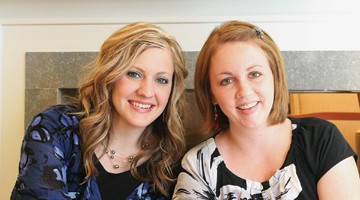Making life changes is more than a matter of willpower, says Joseph W. Grenny (BA ’89), an acclaimed business strategist and best-selling author. “I call it a willpower trap,” he says, “because so many other influencers are involved.”
In December Grenny presented a free webcast through BYU Alumni. He told several hundred alumni who tuned into the event that “the greatest barrier most of us have to changing our lives—whether it’s health status, relationships, careers (really anything)—is changing our own habits. We think we can do it with willpower alone—and it’s so much more than that.
“We make the attempt, let’s say, to lose weight,” he continued. “We will make progress for some time and tell ourselves we are feeling committed, positive, and optimistic. We exert tremendous effort, but it’s like pulling on a rope that continues to pull against us. Unless we are constantly alert, we slide back.”
Grenny and his colleagues, authors of Crucial Conversations, examined the struggles and strategies, trials and triumphs of 5,000 people seeking some sort of change, from health to employment to relationships. Their research resulted in a book titled Change Anything: The New Science of Personal Success. From the experiences of those they studied, they identified six sources of influence: personal motivation, personal ability, social motivation, social ability, structural motivation, and structural ability (see “Six Sources of Influence,” below).
“These six sources of influence surround us all the time, and they have enough pull to determine our behavior and, therefore, our result,” Grenny said. “But if we can’t see them, we can’t change them. When they are working against us, we are blind, outnumbered, and doomed. If we are struggling to change tough habits, we may not have a willpower problem but a math problem. The numbers are simply stacked against us.”
Of the 5,000 people they studied, only a few were successful in making lasting change. One woman lost a lot of weight—130 pounds. “She had kept off that weight for about five years when we met her,” Grenny said. “When we asked her how she succeeded and what she had done over time, much of her success was distilled in the [six sources of influence]. The big idea here is that the people who succeed by aligning these influencers on behalf of change are not only incrementally more successful, they are exponentially more successful. They are 1,000 percent more likely to change.”
BYU Alumni coordinated the webcast to create a learning and enrichment opportunity for BYU’s geographically dispersed alumni.
“The timing was right to involve Joseph Grenny. He has an interesting view on change, which resonates with many of our alumni,” says Keith A. Lue (BS ’86), manager of Alumni Outreach. “We had 746 alumni register for the webcast, and more than 700 have viewed the program online since the webcast was complete. We plan to create more connections with our alumni through more webcasts.”
Six Sources of Influence
1. Personal Motivation: Love what you hate. Find the motivation you need to change your undesirable behaviors by learning to love doing the good habit and hate doing the bad. This will reduce the gap between knowing what you need to do and actually finding the motivation to do it.
2. Personal Ability: Identify the things you can’t do and set achievable goals. Develop the necessary skills to make and keep new habits.
3. Social Motivation and 4. Social Ability: Turn accomplices (those who encourage your bad habits) into friends. Don’t underestimate the power your peers have over your behavior. Tap both their potential to encourage your change and their abilities to help you implement change.
5. Structural Motivation: Reward yourself for successes; for example, give yourself the money you might save by changing your behavior. Punish yourself for bad behaviors; take something away, for instance, such as a spending allowance.
6. Structural Ability: Change your environment to enable good behaviors and hamper bad behaviors. For example, buy smaller dishes to help you eat less.
Watch Grenny’s BYU Alumni webcast at more.byu.edu/changeanything.
Info: Find out about upcoming BYU Alumni webcasts at alumni.byu.edu/webcast.










